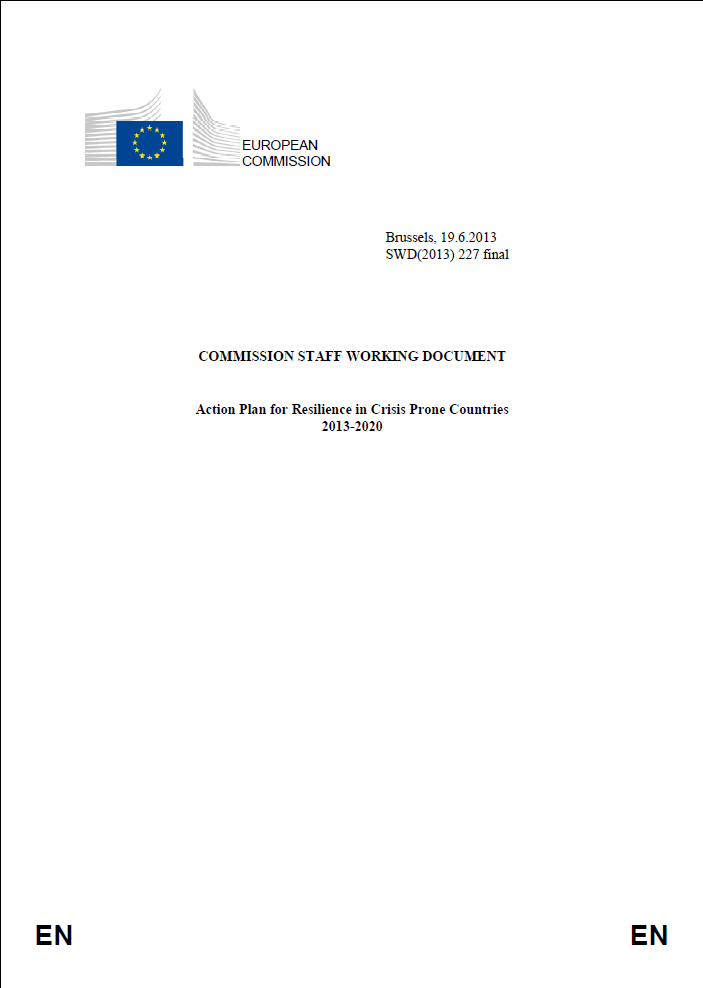Resilience - Communication and Action Plan

The Action Plan for Resilience in Crisis Prone Countries 2013–2020 sets out proposals for the way forward on the implementation of the principles and priorities outlined in the Communication and the Council Conclusions on the EU Approach to Resilience. The Action Plan is articulated around three priorities: (i) EU support to the development and implementation of national and regional resilience approaches, capacities and partnerships; (ii) innovation, learning and advocacy; and (iii) methodologies and tools to support resilience.
Download file (151,47 KB)
![]()
Access file in the Group's Library

The EU Approach to Resilience: Learning from Food Security Crises sets out key policy principles for action to help vulnerable communities in crisis-prone areas to build resilience to future shocks. Drawing on experiences in addressing recurrent food crises — mainly in the Horn of Africa and the Sahel — and with the aim of enhancing the effectiveness of EU responses, the communication recognizes that strengthening resilience lies at the interface of humanitarian and development assistance. It proposes 10 steps to increase resilience, including focusing on more flexible funding and donor coordination. Although based on lessons drawn from food security crises, the approach is applicable to other types of vulnerability, notably disasters, climate change and conflict (EC, 2012).
Download file (115,14 KB)
![]()
Access file in the Group's Library

A strategic approach to resilience in the EU's external action. An ambitious policy framework. There has been an intense effort by the EU over the past few years to re-shape its external policy framework in response to the changing global environment. This new framework comprises multilateral goals such as the 2030 Agenda for Sustainable Development, the Paris Agreement on Climate Change and the Sendai Framework for Disaster Risk Reduction and the Commitments to Action taken at the World Humanitarian Summit, as well as the EU's own major reviews of the European Neighbourhood Policy, of its relations with African, Caribbean and Pacific countries, the European Consensus on Development, and the establishment of a new level of ambition for the EU's security and defence policy. The Rome Declaration has reconfirmed the EU's commitment to a stronger role on the global scene. (EC, 2017).
Download file (593,17 KB)
![]()
Access file in the Group's Library
